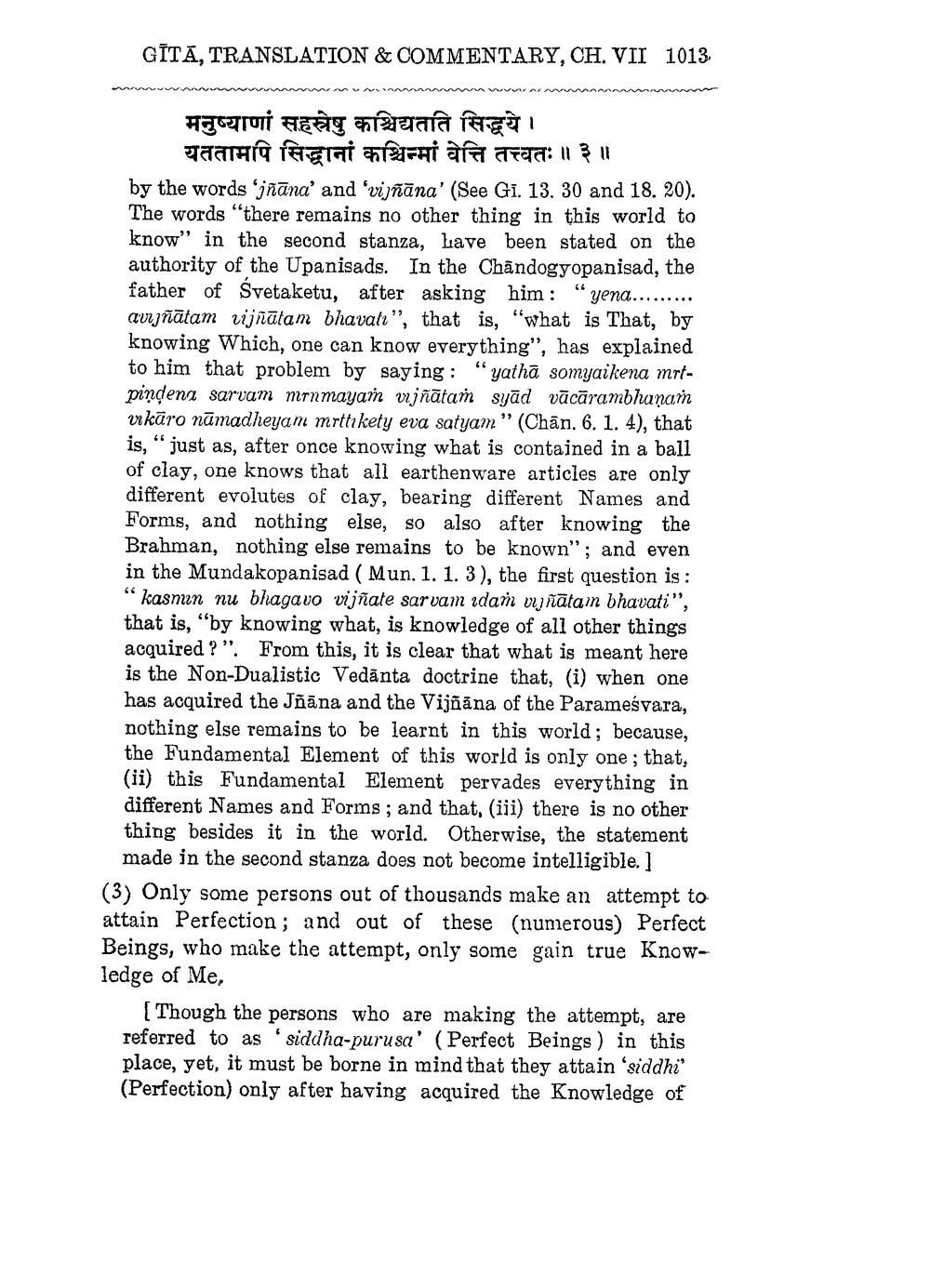________________
GĪTĀ, TRANSLATION & COMMENTARY, CH. VII 1013.
मनुष्याणां सहस्रेषु कश्चिद्यतति सिद्धये।।
यततामपि सिद्धानां कश्चिन्मां वेत्ति तत्त्वतः ॥ ३ ॥ by the words 'jñāna' and 'vijñāna' (See Gi. 13. 30 and 18. 20). The words "there remains no other thing in this world to know" in the second stanza, have been stated on the authority of the Upanisads. In the Chāndogyopanisad, the father of Svetaketu, after asking him : " yena.......... avijñātam vijñātam bhavatı", that is, "what is That, by knowing Which, one can know everything", has explained to him that problem by saying: "yathā somyai kena mrtpindenı sarvam mrnmayaṁ vijñātam syād vācārambhanam
karo mamadhegant mrttaketu eva satyanm” (Chân. 6. 1. 4), that is,“ just as, after once knowing what is contained in a ball of clay, one knows that all earthenware articles are only different evolutes of clay, bearing different Names and Forms, and nothing else, so also after knowing the Brahman, nothing else remains to be known"; and even in the Mundakopanisad ( Mun. 1. 1. 3), the first question is: “kasnun nu bhagavo vijñate sar vam adan vuñātam bhavati", that is, “by knowing what, is knowledge of all other things acquired ?". From this, it is clear that what is meant here is the Non-Dualistic Vedānta doctrine that, (i) when one has acquired the Jñāna and the Vijñāna of the Parameśvara, nothing else remains to be learnt in this world; because, the Fundamental Element of this world is only one; that, (ii) this Fundamental Element pervades everything in different Names and Forms; and that, (iii) there is no other thing besides it in the world. Otherwise, the statement made in the second stanza does not become intelligible.] (3) Only some persons out of thousands make an attempt to attain Perfection; and out of these (numerous) Perfect Beings, who make the attempt, only some gain true Knowledge of Me,
(Though the persons who are making the attempt, are referred to as 'siddha-purusa' (Perfect Beings ) in this place, yet, it must be borne in mind that they attain 'siddhi (Perfection) only after having acquired the knowledge of




